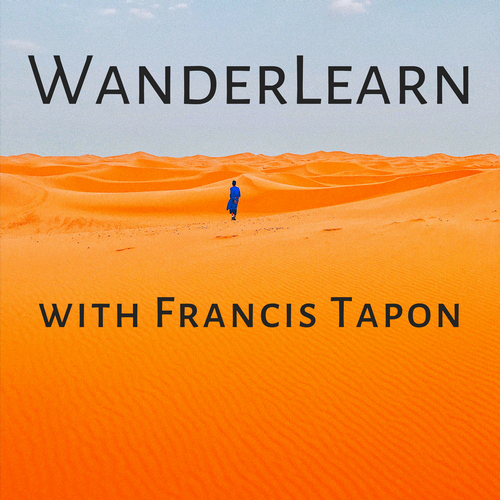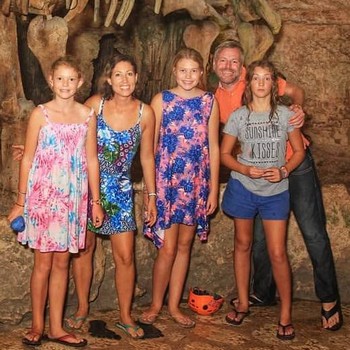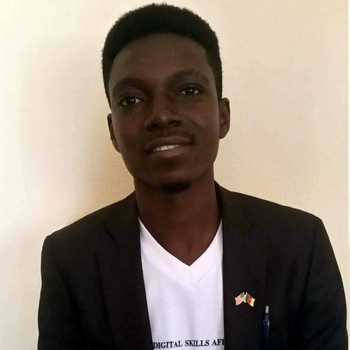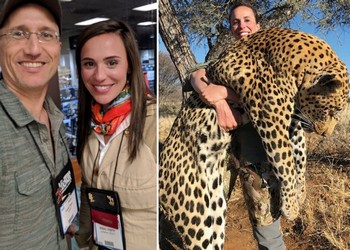WanderLearn Podcast

Check out the latest WanderLearn episodes!
Take a profound and distant journey. Call it:
- Deep Travel
- Immersive Travel
- Slow Travel
- Vagabonding
I will guide you to the intersection of travel, technology, and transformation.
The WanderLearn podcast will compel you to go beyond your comfort zone.
I wander all over the world and I share what I learn with you! In so doing, I hope you'll be inspired to do the same. Travel is the best university.
How to Subscribe to the WanderLearn Podcast
Search for "WanderLearn" in your favorite podcast player.
 If that fails:
If that fails:
This email address is being protected from spambots. You need JavaScript enabled to view it. the details of the podcast player that failed to find the show.- While I fix the problem, copy and paste this feed into your favorite podcast player:
https://wanderlearn.com/feed.xml
Although subscribing is essential, two other things help the WanderLearn podcast:
- Download every WanderLearn episode as I produce them! That's what helps get it noticed! It's better to have 100 subscribers and 100,000 downloads per episode than 10,000 subscribers and 100 downloads.
- Share the episodes! Word of mouth is gold!
Get My Infrequent Newsletter!
Don't just listen, watch!
Some WanderLearn episodes will also be videos, so be sure to subscribe to my YouTube Channel too.
I welcome comments and questions for each episode, which are listed below, from the most recent to the first one. I promise to answer any question from one of my Patrons. That's just one way to get rewarded for supporting the show!
Listen to the latest episodes below!
The show notes and comments for each episode are below

The three most popular excuses people have for not traveling?
- Lack of time
- Lack of money
- Lack of children.
Just kidding about that last one!
Today, we'll look at the real excuse #3: I can't go because I have kids!
When I was in Dar es Salaam, Tanzania, I interviewed the parents behind Growing Up Without Borders.
For the last few years, they are systematically visiting every country in the world with their three daughters!
That's right!
They've been traveling with them since they were 5, 7, and 9 years old!
Now they're 9, 12, and 14 years old.
Tyler & Chantal Patton have three daughters Julia, Angelique, & Chloe.
They've been to nearly 100 countries in the last few years!

Stephen P. Williams, author of Blockchain: The Next Everything, talks about bitcoin, cryptocurrencies, and blockchains. In this interview, I ask him:
- What is a blockchain?
- Is each bitcoin transaction really consuming 30-USA-households worth of electricity?
- What's the difference between proof-of-work versus proof-of-stake?
- What's the promise of Etherum vs. Bitcoin?
- What's blockchain's killer app? What what's the next low-hanging fruit?
- Why should painters love the blockchain?
- Why did someone pay $170,000 for a digital crypto kitty?
- Why is Williams bullish on Ethereum and Litecoin?
- How are dapps (distributed applications) going to impact us? See the state of the dapps that Stephen Williams mentions.
- What does a self-sovereign world look like?
Around 35 minutes into the interview, we discuss an interactive McKinsey matrix about the blockchain industry. It's worth seeing the matrix (or to watch my YouTube video about it).
You can follow Stephen Williams on Twitter.
For those who don't see how this relates to travel (my normal subject), it's that cryptocurrencies and blockchains have the potential of disrupting everything, including the travel industry.

There's a project that is searching for an Einstein in Africa. I may have found him.
His name is Baye Gaspar. He's from the extreme north of Cameroon. He's won countless awards. He's just 26 years old.
It's a brutally honest discussion. I am politically incorrect, as usual. We don't sugarcoat the conversation.
One thing that few will appreciate is that Baye Gaspar comes from a Francophone region. It's hard to find someone from a Francophone region that speaks English as well as he does. That's just another testament of his intelligent.
In this long conversation, we discuss:
- What awards Baye Gaspar has won.
- Why many Africans believe witchcraft is behind his success.
- The pervasiveness of cheating and corruption in many African educational systems.
- Baye's artificial intelligence app that will help with doing medical diagnosis.
- What's the price difference between a modern doctor versus a witchdoctor?
- He's been to 5 African countries. What did he observe?
- What are 10 positive traits and 10 negative traits that Africans have in common?
Update
We recorded this in 2018. Since then:
- Germany didn't give Gaspar his visa.
- Gaspar's app is coming out in late 2019.
- Paul Biya, Cameroon's perennial leader, is still in power in 2019.

Mustapha, Tual, and Usama are three young Egyptians hanging by the Nile in Luxor.
- What do tourists miss out on when they zip through Egypt?
- How important is Allah in Egypt?
- What do think of Israel, Sudan, and Libya
- What's the marriage ceremony like?
- What do you they imagine relationships are like in America?
- What's the future of Egypt?
I apologize that there's the annoying sound of wind during the recording. The Nile is windy and I didn't have a windscreen. The only reason I released this episode was that the content was revealing.

In last week's episode, Brittany Longoria and I talked about her infamous photo featuring a leopard she killed in Namibia in 2018.
A single Facebook post generated 200 heated comments.
As a result, I did an AMA video live-stream for my patrons.
Only my patrons can playback the video, but I'm releasing the audio here.
Last week's podcast opened a can of worms and left many unanswered questions. I didn't address all of the issues, but, in these 40 minutes, Rejoice and I hit some of them.
Lastly, don't worry, this won't become the WanderHunt podcast. I'll be shelving the hunting topic for at least a year. I'll focus on more important matters: hunting tourists!

In 2018, Brittany Hosmer Longoria was swept up in a social media firestorm with these trending hashtags:
- #disgusting
- #cuntress
- #findThisBitch
- #huntTheHunter
- #Monstress
- #immoral
- #murderHer
- #KillHer
- #poacher
What had she done to induce such a vicious reaction?
- Are Hunters Responsible for the Decline of Africa's Wildlife?
- How Volara is Bringing Voice Assistants to Hotels
- Gossamer Gear's Founder Glen Van Peski on Backpacking
- Is Libya Still A Shit Show? Frederick Wehrey answers
- A Persian Goes To Africa
- When To Use Vacasa
- Do Africans Still Practice Witchcraft Or Is That A Myth?
- How To Make A Successful Documentary Movie About Mountains
- How To Do Good & Make Money in Africa - The Anou
- How Does Nigeria Compare to Other African Countries?
- Rolf Potts on Vagabonding, Souvenirs, and Getting Drunk at 5
- When Will iinside Give Us Intelligent Airports?
- Whether You Love or Hate Travel Tours, Check Out TourRadar
- A 66-year-old Adventurer Shows How To Live A Meaningful Life
- Vacasa Is A Full-Service Solution If You Have A Second Home
- Acting CEO of Rome2Rio Makes Partnership With Lonely Planet
- 7 Predictions For 2019
- JoAnneh Nagler Explains How To Make Money Being An Artist
- Tim Butcher - Author of Two Books on Africa
- AMA: Repairing the Schism Between Locals and Tourists
- How To Create A Top Travel Podcast
- The Winding Tree Foundation Founders Answer Criticism
- How To Use, Not Abuse, Couchsurfing
- Amtrak Travel Tips for 2019
- What To Do If You Can't Afford to Travel
- How To Become an A-list Travel Blogger - Gary Arndt Explains
- You're Wrong If You Think You Don't Have Time to Exercise
- Why You Should Always Read Your Alumni Obituaries
- Winding Tree's Blockchain-Based Technology Impacts Travel
- What It Takes to Set a Speed Record or FKT on the AT & PCT
- How To Accumulate Fuck-You Money So You Can Do Anything
- Travis Sherry, The Jetto App, and Getting Travel Bargains
- Introducing A New Travel Show
- Rick Steves Interviews
Your comment will be deleted if:
- It doesn't add value. (So don't just say, "Nice post!")
- You use a fake name, like "Cheap Hotels."
- You embed a self-serving link in your comment.




